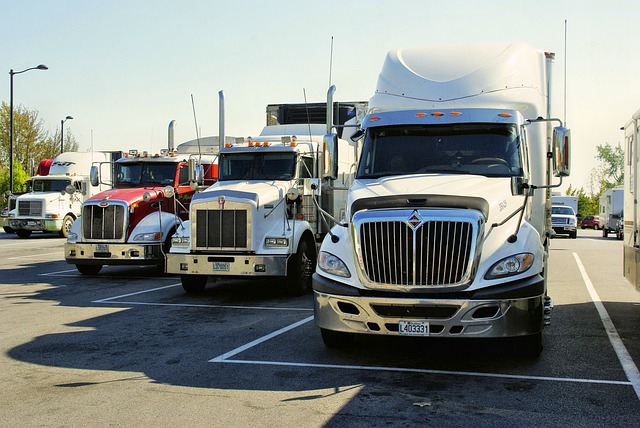Commercial vehicle insurance is a vital investment for businesses and individuals who use vehicles as part of their operations. It provides specialized coverage tailored to the unique risks associated with business-related vehicle use, ensuring financial protection and compliance with legal requirements. Determining whether you need commercial vehicle insurance depends on how your vehicle is used and the type of business activities it supports.
What Is Commercial Vehicle Insurance?
Commercial vehicle insurance covers vehicles used primarily for business purposes. Unlike personal auto insurance, it is designed to handle the higher risks and liabilities associated with commercial operations. This includes higher liability limits, coverage for multiple drivers, and protection for cargo or equipment carried in the vehicle.
Learn more about the distinctions between commercial and personal auto insurance in How Does Commercial Vehicle Insurance Differ from Personal Auto Insurance?.
Who Needs Commercial Vehicle Insurance?
1. Business Owners
If your business owns or leases vehicles, commercial vehicle insurance is essential. It covers the vehicles, drivers, and any liabilities that arise during business operations. Common industries that rely on commercial vehicle insurance include:
- Delivery and Logistics: Companies that transport goods, parcels, or supplies.
- Construction: Businesses using trucks, bulldozers, or other specialized vehicles.
- Transportation Services: Taxi, ride-share, and limousine companies.
2. Independent Contractors
Freelancers or contractors who use their personal vehicles for business purposes often require commercial vehicle insurance. Examples include:
- Delivery drivers
- Landscapers
- Contractors transporting tools or materials
Personal auto insurance typically excludes business use, making commercial coverage necessary.
3. Fleet Operators
Businesses with multiple vehicles, such as trucking companies or car rental agencies, benefit from fleet insurance, a subset of commercial vehicle insurance. Fleet insurance simplifies the process of insuring multiple vehicles under a single policy.
4. Individuals Using Vehicles for Mixed Purposes
If you use your vehicle for both personal and business purposes, you may still need commercial vehicle insurance. This includes:
- Real estate agents driving clients to properties
- Sales professionals traveling to meet clients
5. Non-Owned Vehicle Users
Businesses that rely on vehicles not owned by the company, such as employee-owned cars or rented vehicles, may require hired and non-owned auto insurance. This policy extends coverage to:
- Employee vehicles used for work-related errands
- Rental vehicles for business trips
6. Businesses Carrying Goods or Passengers
If your vehicle is used to transport goods, equipment, or passengers, commercial vehicle insurance is necessary. Industries in this category include:
- Moving companies
- Catering services
- Tour operators
Legal Requirements
In most jurisdictions, businesses are required to carry commercial vehicle insurance to comply with state or federal regulations. Failing to have adequate coverage can result in:
- Fines or penalties
- Suspension of business licenses
- Increased liability in the event of an accident
What Does Commercial Vehicle Insurance Cover?
A standard commercial vehicle insurance policy includes:
- Liability Coverage: Protects against bodily injury and property damage claims.
- Collision Coverage: Covers repair or replacement costs for your vehicle after an accident.
- Comprehensive Coverage: Protects against theft, vandalism, and non-collision damages.
- Uninsured/Underinsured Motorist Coverage: Covers damages caused by drivers with insufficient insurance.
- Cargo Coverage: Protects goods or equipment transported in the vehicle.
For a detailed breakdown of coverage options, check out What Are the Key Coverages in a Commercial Vehicle Insurance Policy?.
Benefits of Commercial Vehicle Insurance
1. Financial Protection
Accidents involving business vehicles can result in significant expenses, including medical bills, legal fees, and repair costs. Commercial vehicle insurance mitigates these risks by covering liabilities and damages.
2. Business Continuity
Unexpected accidents or damages can disrupt operations. Insurance ensures that your vehicles are quickly repaired or replaced, minimizing downtime.
3. Peace of Mind
Knowing that your vehicles, drivers, and business assets are protected allows you to focus on growing your business without worrying about potential risks.
Real-Life Example: Why Commercial Vehicle Insurance Matters
A small landscaping business owner relied on a personal auto policy for their truck, which was used to transport tools and supplies. When the truck was involved in an accident during a job, the personal auto insurer denied the claim, citing business use as the reason. The owner faced out-of-pocket expenses for repairs and legal liabilities. This scenario highlights the importance of having commercial vehicle insurance when using vehicles for business purposes.
How to Determine If You Need Commercial Vehicle Insurance
Ask yourself the following questions:
- Is the vehicle registered under a business name?
- Is the vehicle used to transport goods, passengers, or equipment for business purposes?
- Do employees or contractors drive the vehicle?
- Is the vehicle leased or owned by the company?
If you answered “yes” to any of these questions, commercial vehicle insurance is likely necessary.
Final Thoughts
Commercial vehicle insurance is essential for businesses and individuals who use vehicles for work-related purposes. By understanding the types of coverage available and identifying your specific needs, you can select a policy that protects your vehicles, drivers, and business assets. Whether you operate a single delivery van or manage a fleet, commercial vehicle insurance provides the financial security and peace of mind needed to keep your operations running smoothly.



